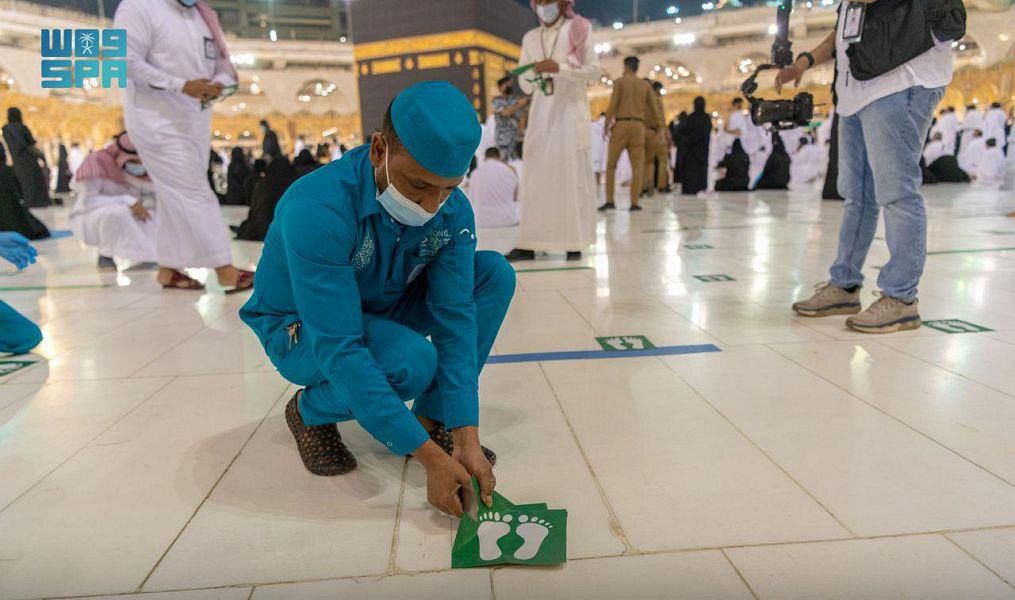
RIYADH: As Saudi Arabia entered its seventh week of the coronavirus outbreak, people throughout the Kingdom were facing up to the prospect of working and studying from home for the foreseeable future.
With gatherings such as conferences and weddings banned, all government employees working remotely, and mandatory sick leave now officially available for those susceptible to the virus, the government has been urging citizens to stay at home and only venture out when absolutely necessary.
Saudi Ministry of Health spokesman Dr. Mohammed Al-Abd Al-Aly reiterated the need for people to limit their movements and avoid gatherings and activities of any kind.
“We’re all partners, citizens and residents of this country. All the steps and precautions are in the interests of this country, to protect us from the outbreak of this virus,” he said.
However, with phrases such as social distancing, self-quarantine, and isolation being bandied about, many people have become confused as to what exactly the terms mean in relation to avoiding infection.
According to the Johns Hopkins University School of Medicine, in the US, the expression social distancing means to deliberately increase the physical space between people to avoid spreading illness, in other words staying at least 6 feet (1.8 meters) away from other people at all times.
Self-quarantine is for individuals who have been exposed to the coronavirus, perhaps through travel or work, and are at risk of contracting the COVID-19 disease. In most cases a quarantine period of 14 days should be enough time to determine if a person will become ill and therefore contagious to others.
Staying at home, not having visitors, and keeping 1.8 meters away from other people in your household are all part of self-quarantine.
All the steps and precautions are in the interests of this country, to protect us from the outbreak of this virus.
Dr. Mohammed Al-Abd Al-Aly, Health Ministry spokesman
Those confirmed to have COVID-19 need to be in isolation, which means keeping infected individuals away from those not infected. Isolation can take place at home (self-isolation), in a hospital, or at a care facility. However, some people are struggling with the idea of keeping a distance from others, especially considering how much importance Saudi culture attaches to social interaction.
Khulood Al-Shareef, a Riyadh schoolteacher and mother, said: “Us Saudis are a very social people, so it’s no surprise that people are finding it difficult to stay at home. For some I would even go so far as to say that they would rather put themselves at risk of contracting the virus than face the prospect of not seeing anyone.”
However, she stressed the importance of everyone following government directives. “I worry for my children and my parents more than anything. One irresponsible person can bring destruction to hundreds of others. Please consider other people before you go out.”
Others are finding it difficult adapting and disciplining themselves to working from home.
Salman Al-Qahtani, an architect, said that while being out of the office environment he was struggling not to slip into “vacation mode” when he got up in the morning.
“What I’ve found works for me is to get up when my alarm goes off, shower and dress for work as if I was actually still going to the office. I have set up a temporary workspace in our dining room, since we’re not using it for guests right now,” he added.
You are protecting yourself, your loved ones, and other people by choosing to practice social distancing.
Marwa Qassim, Housewife
Marwa Qassim, a mom of three boys, said she had drawn up a schedule that gave each of them a chore, a fun activity, and a set time to learn a new skill each day in an effort to keep things interesting.
“In the morning, I take care of business while they attend their virtual classes and do their homework. In the afternoon, we rotate chores and each boy gets one task to do, helping to clean, picking up their toys, things like that. They then get to do an activity of their choice, playing video games or doing arts and crafts.
“We spend the evenings trying to pick up new skills: One is learning to cook with me, another is trying to get better at swimming, and there is also learning a new language,” she added.
“You are protecting yourself, your loved ones, and other people by choosing to practice social distancing. And if you try to take it as an opportunity to re-forge your family bonds and spend quality time with them, you will start to see it as more of a blessing than a curse,” Qassim said.












